
A few photos from Halloween and our Masquerade Ball!




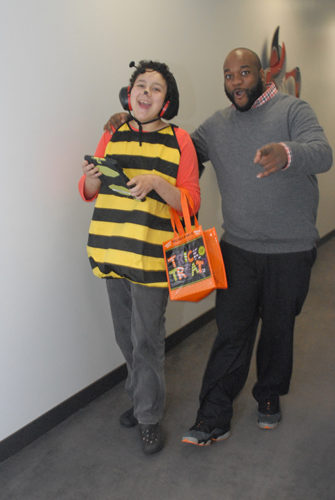
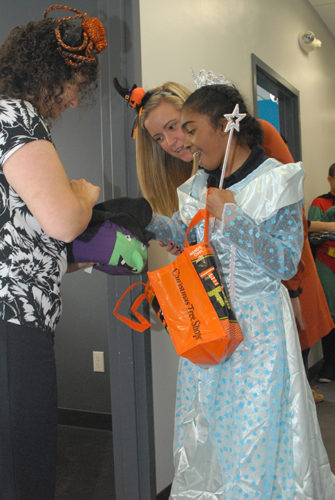










Erica had a nice time celebrating her birthday with her family

Fun events planned this month include a Celtics game, bowling field trip, and a Dave & Busters outing
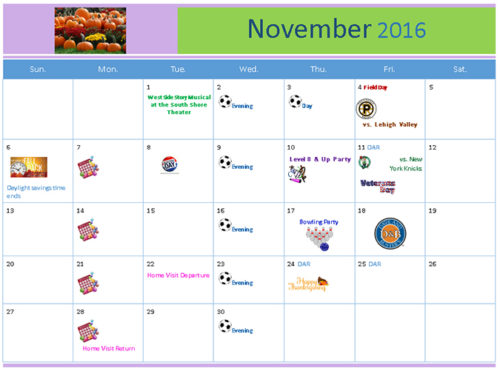
Aliyah is doing a wonderful job helping out in our Admissions department

Join us for a 6 week American Sign Language course starting today!
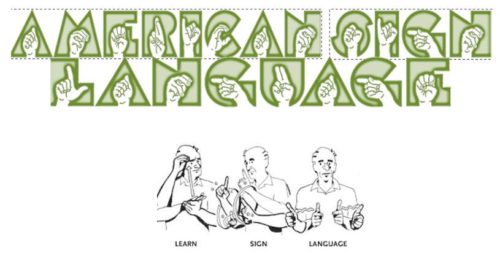
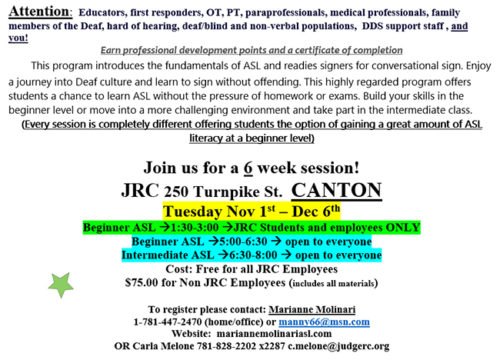
Fun time cheering on the New England Revolution!
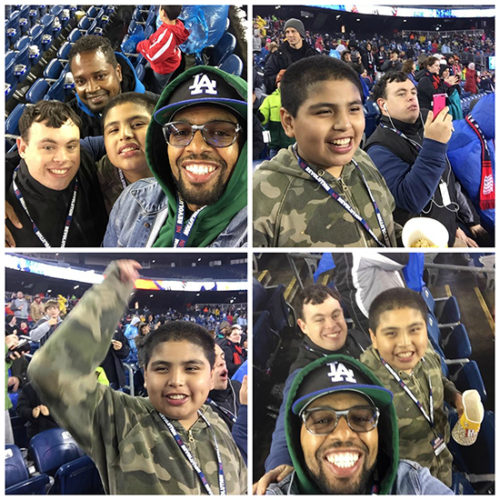
A few students enjoying some of the interesting things to do at JRC

Happy Birthday to all our students celebrating this month!

Please Don’t Take Away My Autistic Son’s Treatment
Please Don’t Take Away My Autistic Son’s Treatment
The Wall Street Journal
COMMENTARY
The FDA might ban the harmless skin shocks that keep him from self-injury, though they have worked.
Paul E. Peterson
June 23, 2016 7:01 p.m. ET
Though they have never met my son David and have no information about his specific diagnosis or care, bureaucrats at the Food and Drug Administration are endangering his life by proposing to stop the one treatment that has allowed him to lead a happy life that includes learning, socializing and having loving relationships with his family.
David is one of a small percentage of individuals with autism and mental disabilities who engages in life-threatening self-injurious behaviors, including shoving his hands down his throat and banging his head with such force as to permanently damage his ear. For the past 10 years he has been dissuaded from such activity by means of an abundance of rewards if he controls his self-harming behavior and an unpleasant, but harmless, two-second skin shock via an electronic stimulus device, or ESD, if he attempts self-injury.
While the device has been used effectively for many years with individuals like David at the Judge Rotenberg Educational Center, a residential special-needs school in Canton, Mass., the FDA is trying to ban it at the behest of ideologically driven advocacy groups such as the Disability Law Center in Massachusetts, whose executive director calls the therapy “horrible torture.”
Amazingly, the FDA says similar therapy is allowable if it is used to deter cigarette smoking.
Denial to my son is justified on the grounds that he doesn’t have the same ability as smokers to decide whether or not to receive aversive treatment. But that specious argument could be used to ban all medical treatments for people with intellectual disabilities for any condition whatsoever. It is standard practice to give people like David the same treatment others would receive as long as the consent of parents or guardians is obtained. As a further protection, all ESD treatments at David’s school must be approved by a probate judge. Further, David receives an abundance of rewards for controlling his behavior, and he is under the constant supervision of a dedicated, caring team.
Denying treatment to people with disabilities when it is available to others violates the equal protection clause of the 14th Amendment. In its 1997 ruling in Judge Rotenberg Educational Center Inc. v. Commissioner of the Department of Mental Retardation, the Massachusetts Supreme Judicial Court unanimously affirmed a lower-court finding of contempt against the Commonwealth of Massachusetts for its interference with the use of electronic stimulus devices. The FDA’s proposal ignores that decision.
The FDA claims that alternative treatments are available. It is wrong. After trying many other institutions and therapies, including the drugs Mellaril, Thorazine, Haldol, Ritalin and Noctec, David in 1988 entered the highly regarded Neurobehavioral Unit at the Kennedy Krieger Institute that specializes in the treatment of self-injurious behaviors. Specialists explored a wide variety of treatment protocols, including various drug therapies. After four months, the center’s experts, finding no effective alternative, agreed that placement at the Judge Rotenberg Educational Center was the best available option for David. Our local school district authorized the placement.
The FDA asserts that skin shocks are no longer necessary but it provides no documentation that drugs are effective for people like my son. In the past, drug therapy aggravated David’s self-injurious behavior. The use of psychotropic drugs also poses multiple risks of physical and psychological side effects. By contrast, skin shocks have no demonstrated side effects beyond a temporary redness to the skin that usually disappears within minutes.
The FDA also asserts that the skin shock constitutes physical and psychological harm. My wife and I have both experienced an ESD application. The experience is disagreeable, but not nearly as painful as a paper cut to the finger. Nor have we detected any sign of psychological damage to our son. Quite the contrary: David loves to visit his family, and he is no less happy to return to his friends in the residence where he lives.
Before arriving at his special-needs school, David’s attempts at self-injury were continuous unless he was physically constrained. Today, he is in excellent physical health, and he has made striking gains in his sociability, curiosity and ability to carry out basic self-care. He participates in community events and visits his family about once a month. His attempts at self-injury average once a week, a low level he has sustained for the past several years.
Our son, who is now 45 years old, is enjoying a quality of life that my wife and I did not believe was possible before he had access to this treatment. The FDA’s proposal would place his health—and life—at risk. The alternative treatment plan for him is physical restraints and mind-numbing drugs. For the sake of our son and others like him who have benefited from an electronic stimulus device, the FDA must withdraw its proposed regulation.
Mr. Peterson is a professor of government at Harvard University where he directs the Program on Education Policy and Governance.
http://www.wsj.com/articles/please-dont-take-away-my-sons-treatment-1466722896